Late winter is a time when you might notice metal buckets on trees and smoke billowing from rural sugarhouses — sure signs that sugaring season has returned to Connecticut.
The Maple Syrup Producers Association of Connecticut holds an annual celebration of sugaring season with Maple Weekend, which occurs this year on March 18th and 19th. There are 19 farms and sugarhouses participating in the occasion as well as three festivals taking place across the state.
Maple Weekend gives you a chance to tour a sugarhouse, sample a variety of maple products, and learn more about how maple syrup is produced in Connecticut.
Connecticut maple syrup
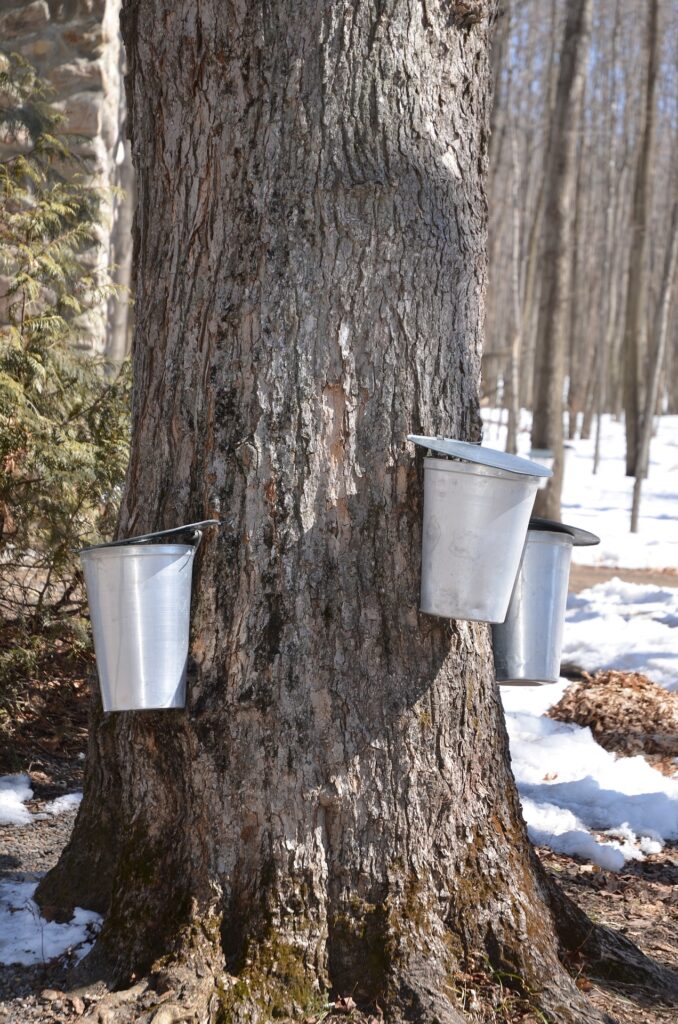
There are almost 200 farms producing more than 17,000 gallons of syrup a year in Connecticut, according to the USDA’s latest data. Connecticut ranks 10th among all maple producing states, and sugaring is generally not a full-time profession here. Many CT Grown farmers produce maple syrup to make the best use of their land and to supplement their income during the winter.
Connecticut maple syrup can be readily found at farmers’ markets, retail stores, and other local venues, including some grocery stores. Many of Connecticut’s sugarhouses are open to the public during the late winter, inviting people to learn more about how maple sap is converted to syrup and to purchase the maple products available for sale.
The maple syrup production process is accessible enough for hobbyists to try it on their own. The Maple Syrup Producers Association of Connecticut includes not only farms and sugarhouses, but also individuals and community organizations. With the purchase of some affordable equipment, anyone can tap maple trees on their property and try their hand at the sugaring process.
Choosing the right maple syrup color
Maple syrup used to come in separate grades, but this system was changed in 2015 to keep consumers from mistakenly believing that Grade A syrup was of higher quality than the darker B and C grades. While all syrup is now listed as Grade A, it still comes in four distinct colors: Golden, Amber, Dark, and Very Dark.
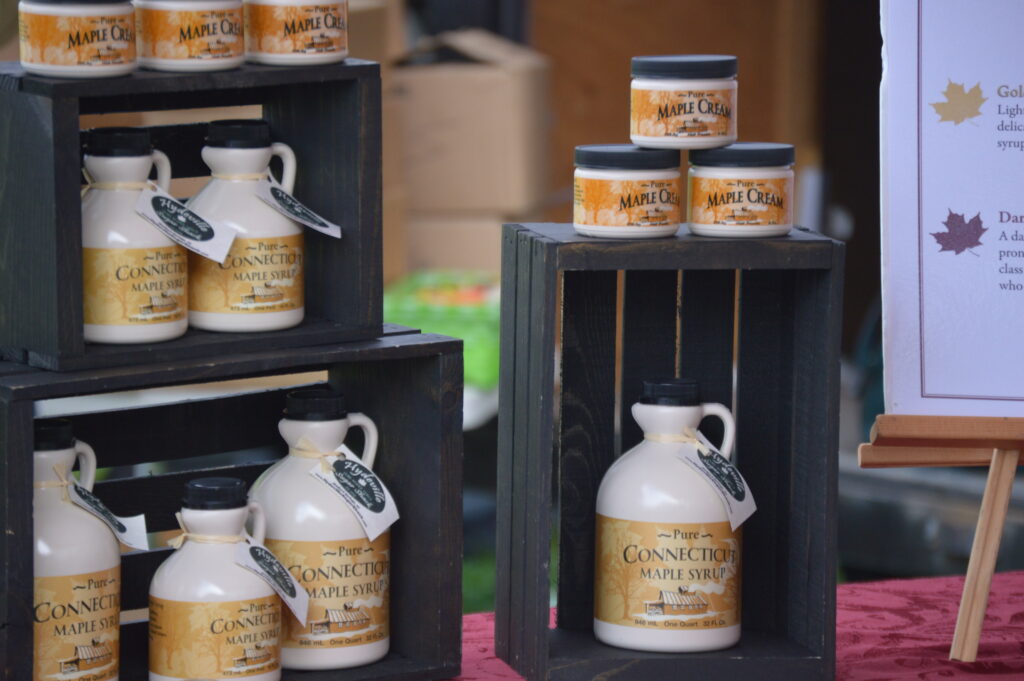
Lighter syrups come from earlier in the sugaring season and have a milder flavor. This makes them ideal for pairing with traditional breakfast foods like pancakes and waffles, pouring on ice cream, or adding flavor to beverages like coffee or cocktails.
Darker syrups indicate that the sap was collected later in the season and has a more robust and intense flavor. These varieties are best used for cooking, baking, or creating glazes.
More than just syrup

Maple syrup is the primary product created from maple sap, but there are numerous other items maple producers put out each harvest season. Some of the most popular are granulated maple sugar, maple cream, and maple candy, a simple mixture of syrup and butter which is then molded into a variety of shapes.
Maple producers also frequently partner with other farmers in Connecticut to create tasty and unique CT Grown foods. These include maple-flavored milk, yogurt, and jams and jellies.
When is sugaring season in Connecticut?
Sugaring season traditionally takes place from early February through late March. This time of year tends to include a mixture of warmer days and freezing nights, and this freeze-thaw cycle is just what is needed to get the sap flowing in maple trees.
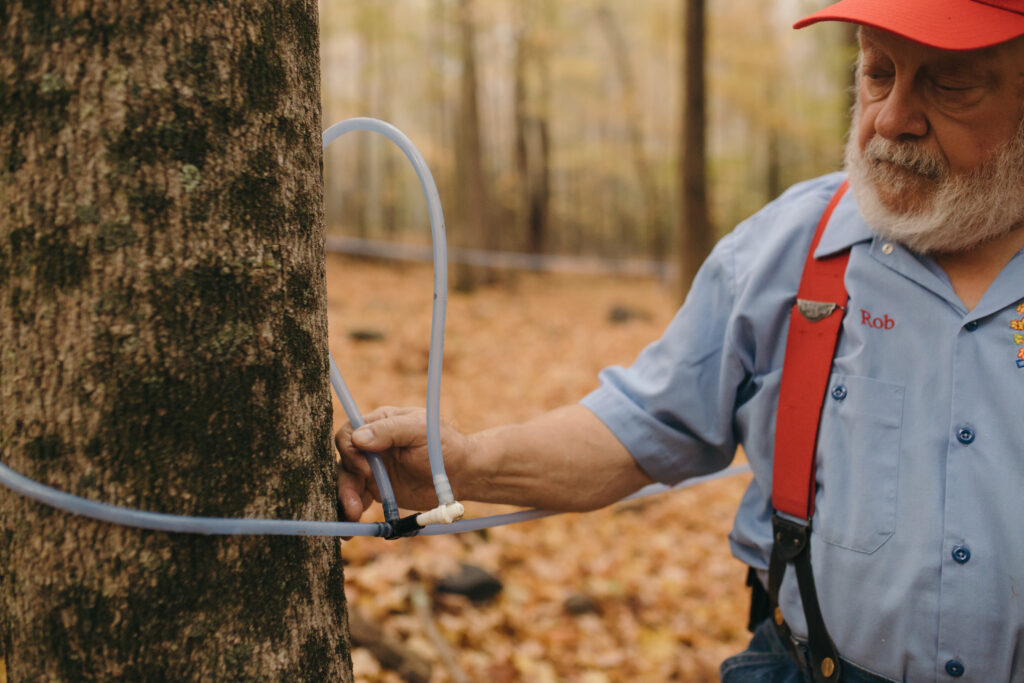
Producers make advance preparations for the sugaring season, such as deciding which maple trees to tap and collecting firewood for the sugarhouse, but the season itself only lasts about six to eight weeks. Trees are tapped using metal spouts called spiles, which allow sap to flow into covered metal buckets or through tubing to a holding tank.
After sap is collected, it is boiled to evaporate the water and increase the sugar content. The syrup is then filtered, graded, and bottled.
It’s the perfect time to pick up CT Grown maple syrup, so check out what’s at your local store or farmers’ market and mark your calendar for Maple Weekend!
Winter is the best time to start planning the next season for your garden, but time is quickly running out! Whether you’re starting a new home garden or reviving an existing one, these steps will help ensure a productive spring.
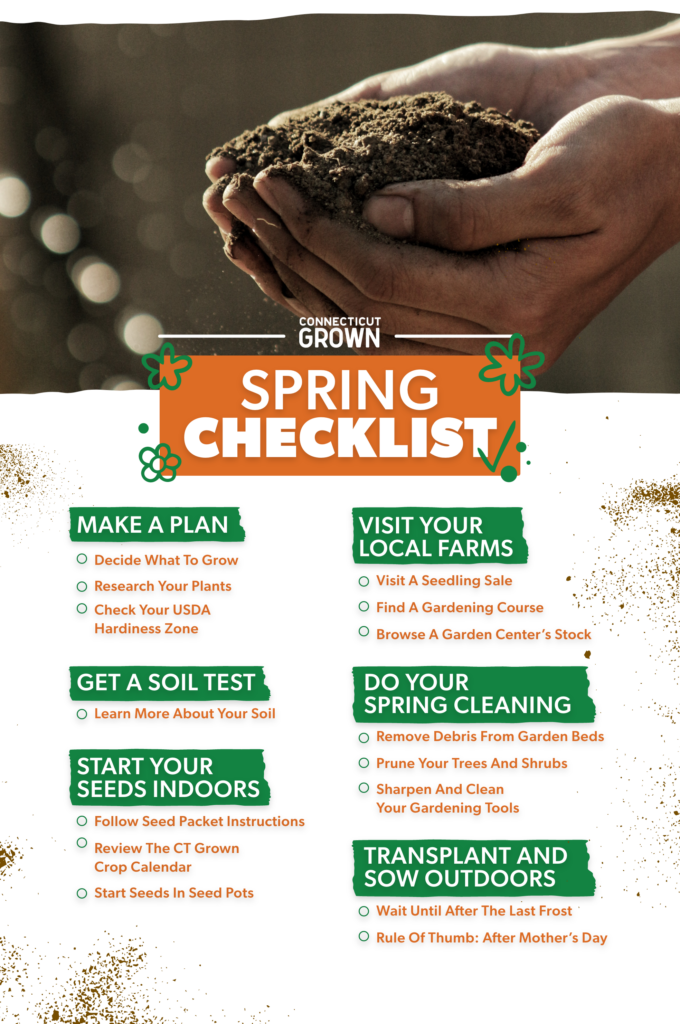
Helpful Resources
- Find your USDA Hardiness Zone
- Get your soil tested at the University of Connecticut’s Soil Nutrient Analysis Laboratory
- Check the CT Grown crop calendar
- Follow the Connecticut Nursery & Landscape Association
As part of Black History Month, we’re highlighting how Connecticut’s Black-owned farms are planting the seeds for the state’s agricultural future. In addition to providing CT Grown products for the market, Black farmers are often actively involved in nonprofit groups working to improve access to fresh food in Connecticut’s cities through urban farms, community gardens, educational programs, and more.
Agriculture remains a predominantly White profession; just 2 percent of farmers in the United States are Black. The ratio is similarly lopsided in Connecticut. The last USDA Census of Agriculture in 2017 found just 25 Black farmers responded among Connecticut’s more than 9,500 agricultural producers.
Yet many young Black farmers are actively working to change perceptions about farming and encourage people of color to consider it as a career. Let’s take a closer look at some of these producers, how they’re shaping the future of CT Grown, and how you can support them.
Echo Farm
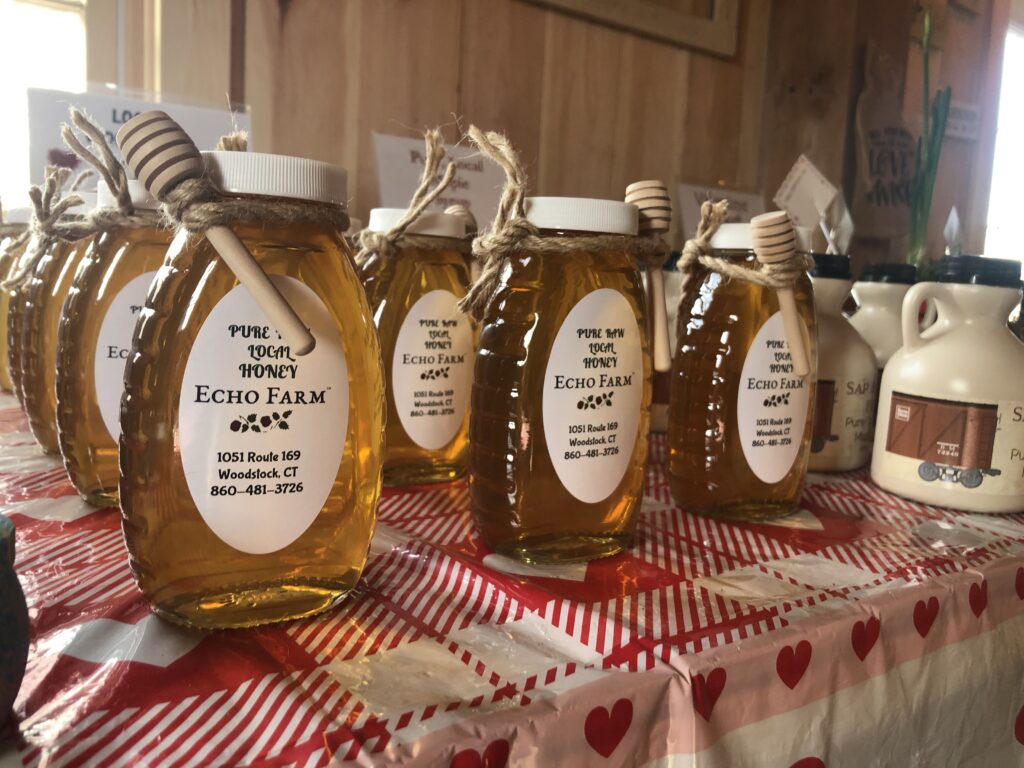
In a profile for the Boston Globe, Robert Chang recalls how he would visit his grandparents’ small farm while growing up in Jamaica. But he didn’t give agriculture a try until he was in his 30s, when he started a backyard garden at his home in Middletown. This proved so bountiful that he set up a roadside stand to sell the surplus.
That surplus inspired Chang to start a larger farm, and in 2015 he purchased a 14-acre property in Woodstock. He now runs Echo Farm, which grows organic produce and cut flowers that he sells to restaurants, at a farm stand, and at farmers’ markets.
Chang balances farming with a full-time career in IT. He co-founded the Southern New England Farmers of Color Collaborative and has been active in other local farming organizations, including CT NOFA and the New Connecticut Farmer Alliance.
Hodges Family Farm
In 2015, Army veteran Anthony Hodges purchased an 1899 farmhouse on the outskirts of Waterbury. His original goal was to renovate the property as a way of dealing with his PTSD. Family members pitched in on the project, and then members of the community started helping to maintain the land every weekend.
Today, Hodges Family Farm is open to the public. Visitors are able to pick their own fruits and vegetables, purchase produce at a farmstand, or make day reservations to simply relax at the farm.
Micro2Life
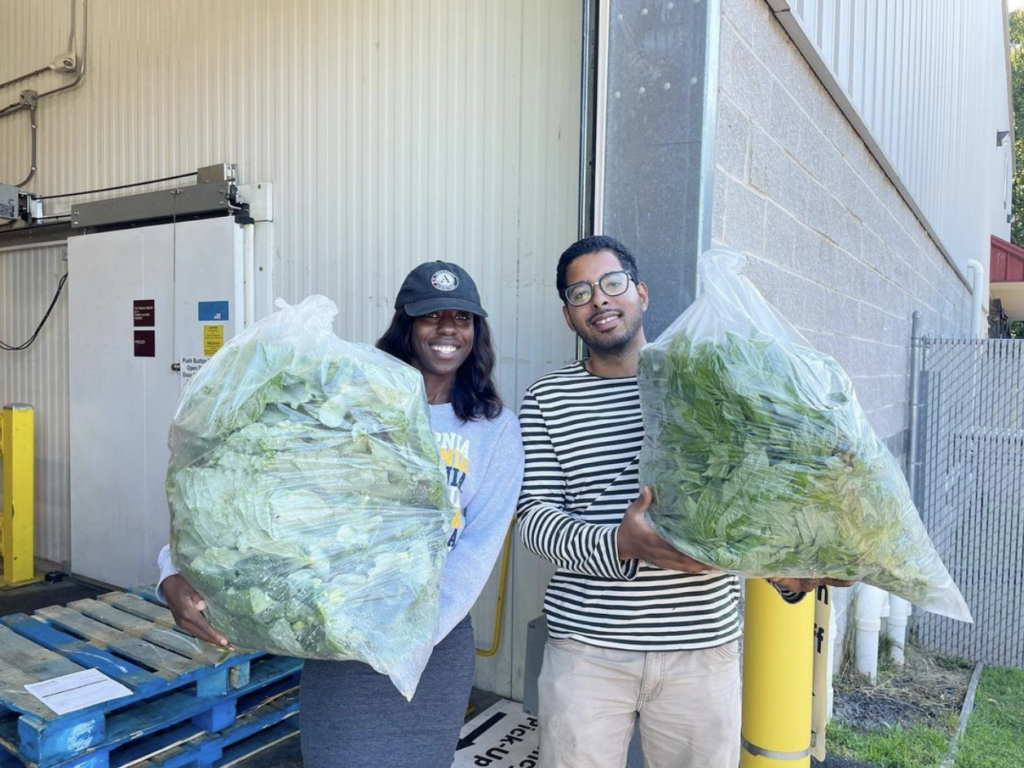
Emmanuel Marte raised his first crop while he was working in Maryland and successfully grew a tomato plant at his apartment. He began experimenting with other crops, such as growing microgreens indoors, and learned more about agriculture through KNOX Hartford after returning to Connecticut.
In 2018, Marte established Micro2Life with Zania Johnson, whom he met while studying biology and nutritional science at the University of Connecticut. Micro2Life grows organic vegetables including hydroponically produced leafy greens, peppers, turnips, and some specialty crops such as Jamaican pumpkins.
The vegetables are sold to customers as well as schools and restaurants, and some are donated to food security programs. In 2022, Micro2Life supplied CT Foodshare with over 4,000 pounds of produce.
Johnson and Marte have actively worked to encourage people to learn more about where food comes from and to consider agriculture as a career. They have given presentations in schools, conducted urban farmer training programs, and led educational courses on hydroponics and growing microgreens.
Park City Harvest
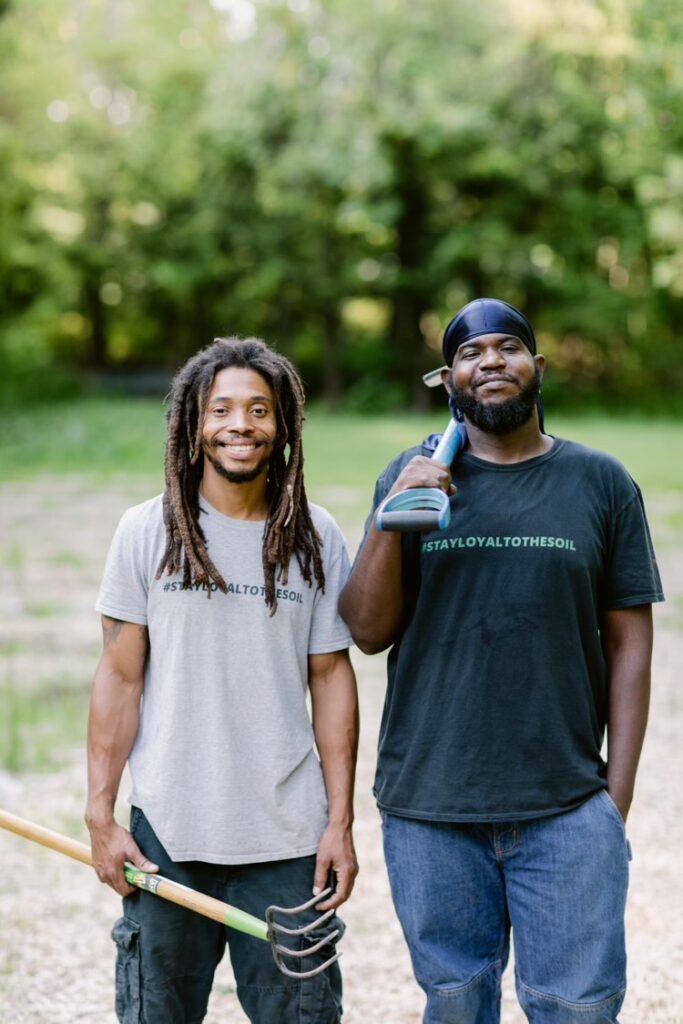
Richard Myers recalls that his classmates sometimes asked him if his name was Shawn while he was studying horticulture at Naugatuck Community College. Eventually he met “the other Black kid in the program,” Shawn Joseph, and the seed of Park City Harvest was born.
The duo founded the company in 2018, currently specialize in microgreens grown in an indoor farm, and are also adding a hoop house and honeybees. In addition, they offer value-added products such as West Indian hot sauce, pickled jalapenos, dried herbs, olive oils, teas, and T-shirts dyed by the flowers and vegetables they grow.
Aware of the small share of Black farmers in agriculture, Park City Harvest operates under the slogan “Changing the Image of Farming.” The business aims to be a supplier of fresh, sustainable, culturally appropriate food in the Bridgeport area.
Myers and Harris say there is sometimes a negative stigma in the Black community that equates farming to slave work, but that they are working to portray agriculture as a means of financial freedom. Their outreach includes a new nonprofit, North Carver Foundation, to “educate, fund, and promote all farmers of color.” They also plan to publish a cookbook and a farming-themed children’s book.
“Having the opportunity to grow food for yourselves and your community and income is empowering,” they say.
Root Life

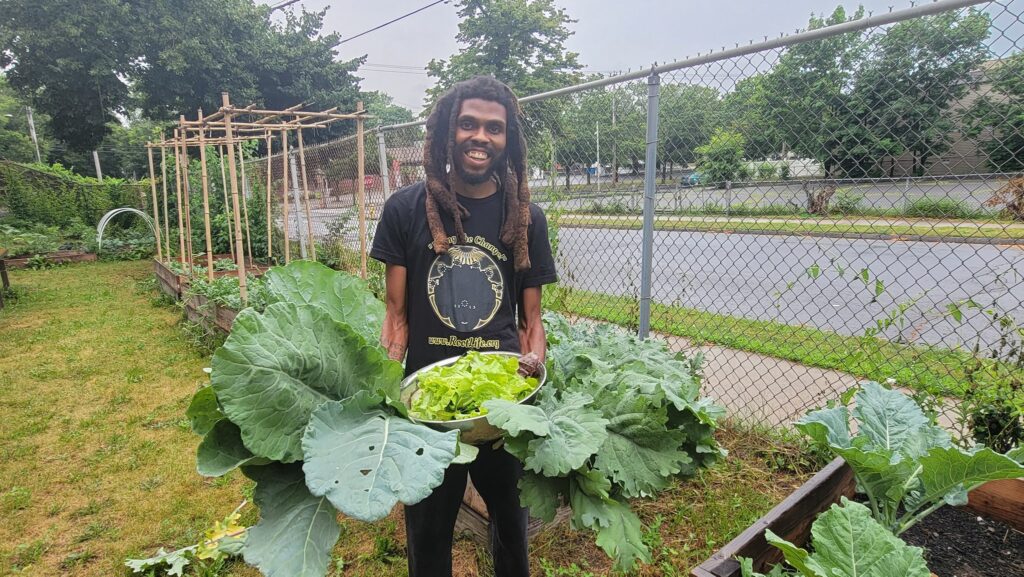
Dishuan Harris’s interest in farming began with a simple realization: while his ancestors had been able to work the land and provide for their families, he only knew how to buy his food.
Harris, a New Haven native, began volunteering with as many local agricultural organizations as he could. He was later hired as a farmer and educator with Common Ground High School in New Haven, then started his own business in 2016 with the goal of sharing the agricultural knowledge he had developed over his career.
Through Root Life, Harris (also known as Native Praxis, or Farmer D) raises organic produce such as berries, herbs, and microgreens. He farms on a selection of different community spaces, totaling about one-sixth of an acre in total.
“These grow spaces are unique because they are in the center of urban neighborhoods that currently deal with food apartheid (food deserts),” says Harris. “As a result, these grow spaces contribute more than just the production of organic produce; these spaces offer a place for the community to connect to each other and reconnect to natural spaces.”
Harris also sells vegan health and beauty products; and provides environmental consulting services on topics like edible landscaping, gardening, and farming. He plans to start selling value-added products made from locally grown and locally produced ingredients.
Harris continues to volunteer with numerous Connecticut urban agriculture groups, helping them in areas such as youth education and the startup and maintenance of community gardens. He has also established other organizations with the goal of promoting sustainability and food sovereignty, including Love Fed and Root Life Media.
Samad Gardens Initiative
Azeem Zakir Kareem remembers that it was a “culture shock” when he started working at Holcomb Farm in West Granby and saw the rows of vegetables. He says urban “food deserts” have led to a significant lack of awareness in Black populations about how their food is sourced.
Kareem had been invited to work at the farm by his wife Sarah Rose Kareem, then Holcomb Farm’s wholesale manager. In 2020, they started their own business, Samad Gardens Initiative, with the goal of inspiring and educating people of color to grow food for themselves and their communities.
Their Windsor Locks farm raises organic produce and medicinal herbs, which are sold at farmers’ markets and donated to organizations such as Connecticut Foodshare. Samad Garden Initiative also creates value-added products such as tea blends, and the Kareems offer numerous educational offerings on topics such as regenerative growing techniques and seed saving.
SEAmarron Farmstead
Liz Guerra and Hector “Freedom” Gerardo were dabbling in agriculture even when living in a Manhattan apartment, composting their food scraps on the fire escape. Shortly after they moved to Connecticut, the couple developed even more of an appreciation for locally sourced food due to the grocery shortages brought on by the COVID-19 pandemic.
As a way of promoting food sovereignty, Guerra and Gerardo established SEAmarron Farmstead on a 3.1-acre plot behind their Danbury home. They tend to a small but diverse farm operation that raises crops including vegetables, apples, and hemp. A small apiary is also on the site.
Both co-founders of SEAmarron Farmstead are involved with the New Connecticut Farmer Alliance. Gerardo has also founded the nonprofit companies E&G Community Builders and 1Freedom for All, both of which encourage people of color to address food insecurity in their communities.
To learn more about the Connecticut Department of Agriculture’s working groups to support diversity, equity, and inclusion in Connecticut agriculture, click here.
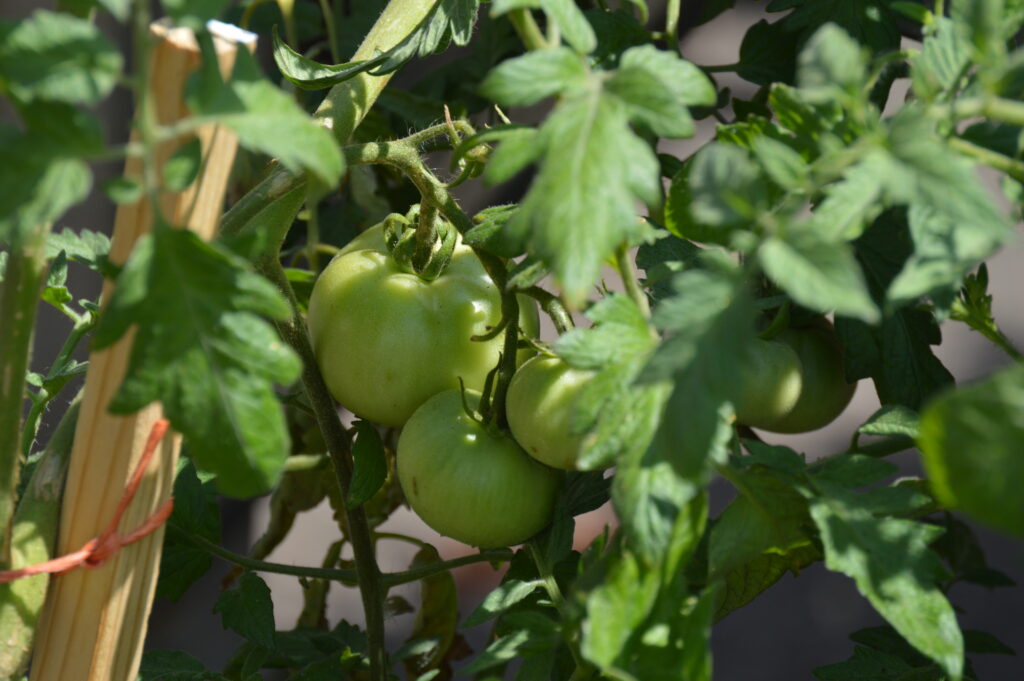
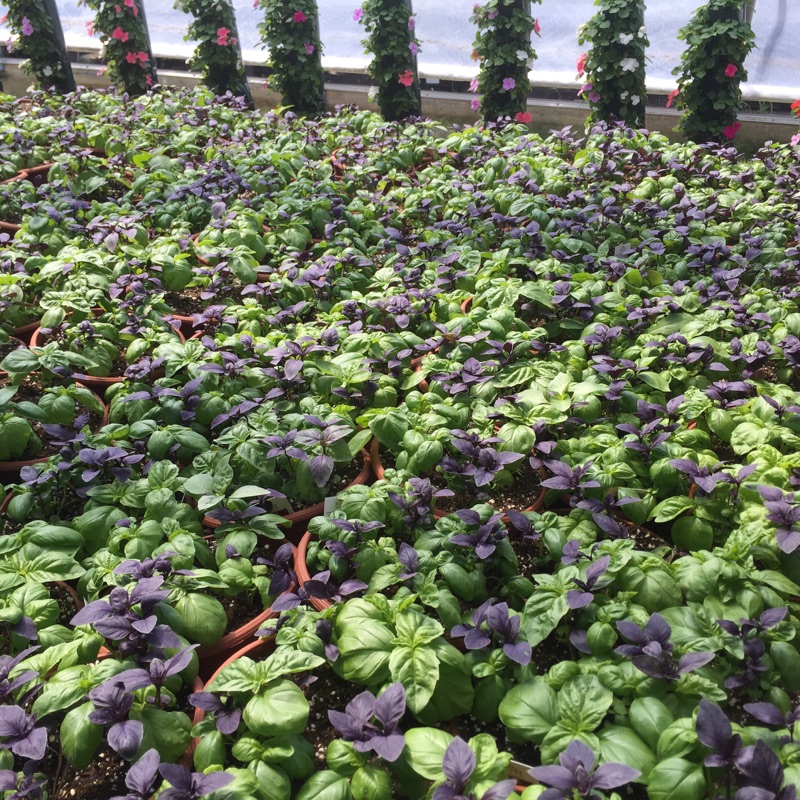
Don’t assume that a farm is closed to customers just because it’s winter. If the CT Grown farm near you has greenhouses on the property, they’ll likely still have their products available at their farm store, or at a winter farmers’ market or grocery store.
Greenhouses play a major role in sustaining CT Grown products throughout the year, representing one-third of the state’s agricultural activity. At last count, Connecticut had 12.7 million square feet of commercial greenhouse space!
Read on to learn about what CT Grown products are available year-round thanks to greenhouses. You can also read our previous articles on hydroponic farms and mushroom farms.
Winter bouquets
Flower cultivation is one of the strongest agricultural sectors in Connecticut, and greenhouses allow these farmers to offer beautiful, fresh bouquets any time of the year. And since greenhouse conditions can be adjusted to create warmer growing conditions, it’s also possible to produce ornamental flowers that wouldn’t be able to grow in Connecticut’s typical outdoor climate.
Look for the CT Grown label on floriculture products like:
- Cut flowers
- Potted plants
- Indoor foliage
- Bedding or garden plants
Protected fruits and vegetables
While the majority of greenhouses in Connecticut support the state’s vibrant floriculture industry, there are also more than 150 farms that grow fruits and vegetables under glass or other protection. This enables CT Grown farmers and producers to continue providing a steady supply of food to stores and winter farmers’ markets throughout the year.
Greenhouses are large enough to support fruiting trees and other crops that need more vertical space. Farmers have also used other protective methods—such as hoop houses, row covers, and high tunnels—to warm the soil, shelter crops from the wind and cold, and extend their growing seasons.
Crops that can be found earlier in the year, or even throughout the year, due to greenhouses and other protective structures include:
- Arugula
- Beets
- Broccoli
- Cucumbers
- Eggplant
- Greens
- Herbs
- Kale
- Lettuce
- Radishes
- Salad greens
- Scallions
- Spinach
- Tomatoes
Explore Connecticut’s greenhouses
There are nearly 600 commercial greenhouses located throughout Connecticut. To find one near you, visit the CT Grown map.
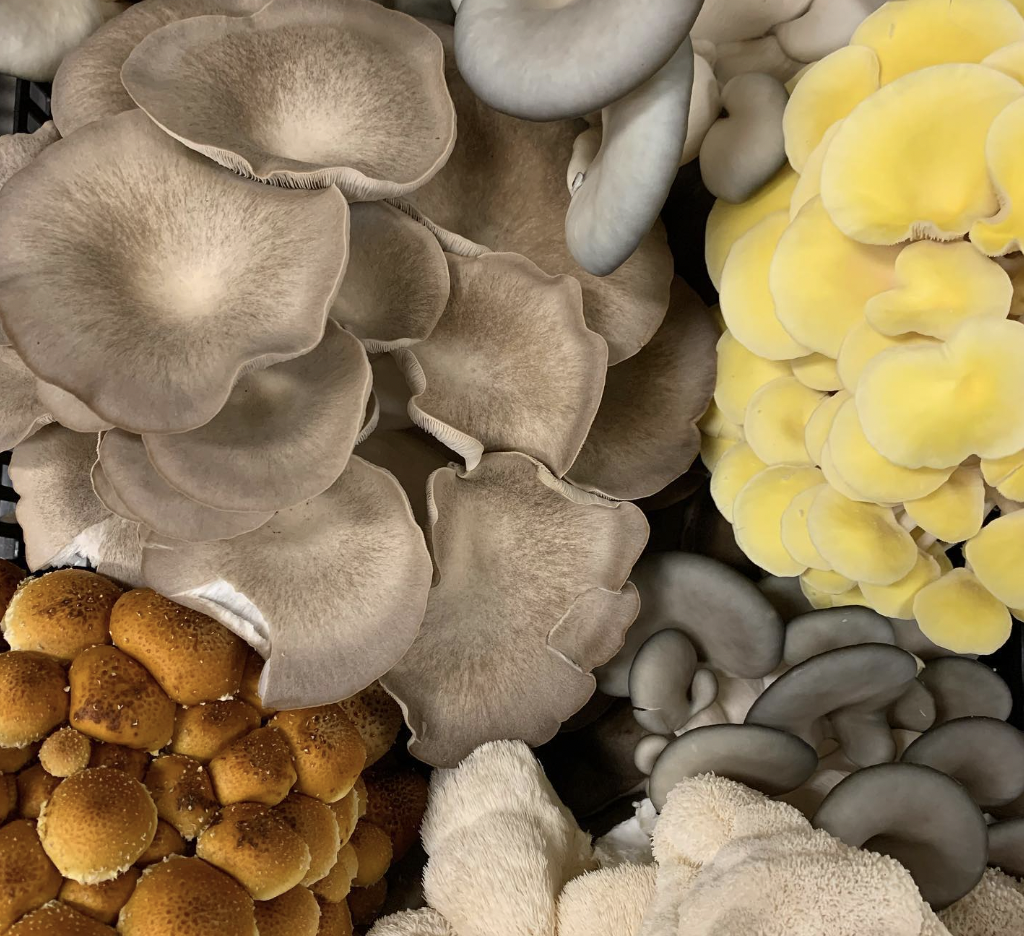
Whether you use them in a stir fry, on a pizza, or with a meat entree, mushrooms are a terrific way to add extra flavor and nutrients to a dish. And you don’t have to go far to find them — mushrooms are a CT Grown crop whose harvest season never ends!
Mushrooms thrive in indoor growing environments, allowing farmers—and consumers—to constantly be collecting them. Read on to find out where you can find CT Grown mushrooms and how you can add them to your dinner plan.
Popular CT Grown mushroom varieties
Indoor farming allows for the production of numerous varieties of mushrooms. Here’s a look at some of the most popular options, and how you can prepare them.
Lion’s mane: A favorite in gourmet cooking, lion’s mane mushroom has a tender texture and juicy flavor that is often compared to seafood. Naturally, this makes it a good choice to accompany dishes like lobster, crab, and scallops — or to serve as a non-meat alternative to these choices in vegetable dishes.
Maitake: Offers a rich taste described as earthy and peppery. It pairs well with vegetable dishes, and is also a good choice for savory entrees like steak.
Morel: With a nutty, earthy flavor, morel mushrooms are a great side dish on their own. They also do an excellent job strengthening the flavors in pasta dishes.
Oysters: A common mushroom with a mild flavor, oyster mushrooms are an easy way to add more nutrients to a meal. There are several different varieties of this mushroom, such as blue oyster and golden oyster, offering subtle differences in flavor.
Shiitake: One of the most popular types of mushroom, shiitake is intensely flavorful with an earthy, buttery taste. It works well as its own dish, on pizza, or with meat or fish.
Explore Connecticut’s mushroom farms
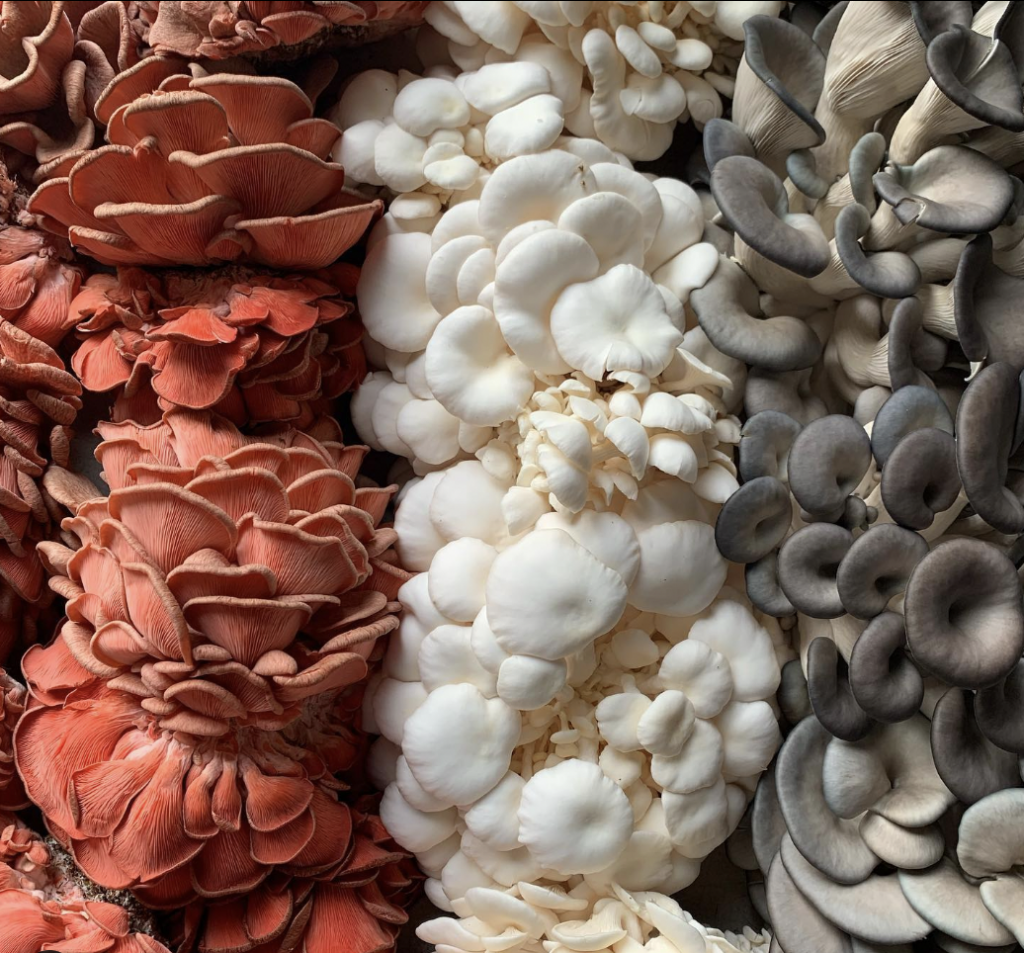
Mushrooms are a fast-growing industry in Connecticut, with USDA statistics showing the number of mushroom farms in the state tripling between 2012 and 2017. Some CT Grown mushroom farms include:
“I don’t think I need a box of vegetables every week.”
It’s a leading concern we hear from people who aren’t sure if they’ll benefit from joining a CSA (Community Supported Agriculture) program. They worry that their CSA will have more vegetables than they can use each week (or that it won’t have the kind of produce they’ll use), resulting in wilted vegetables and lost money.
Rest assured, CSAs aren’t just limited to boxes of vegetables; there are options available for a wide variety of products, including meat, flowers, and seafood. Just like traditional CSAs, they allow CT residents to enjoy fresh food, get to know their local farmers and producers, and enjoy member perks while supporting Connecticut’s agricultural economy.
CT Grown farmers have also improved the flexibility of their CSAs in key, innovative ways. Read on to find out about the different types of CSAs that can fit your lifestyle.
Meat CSAs
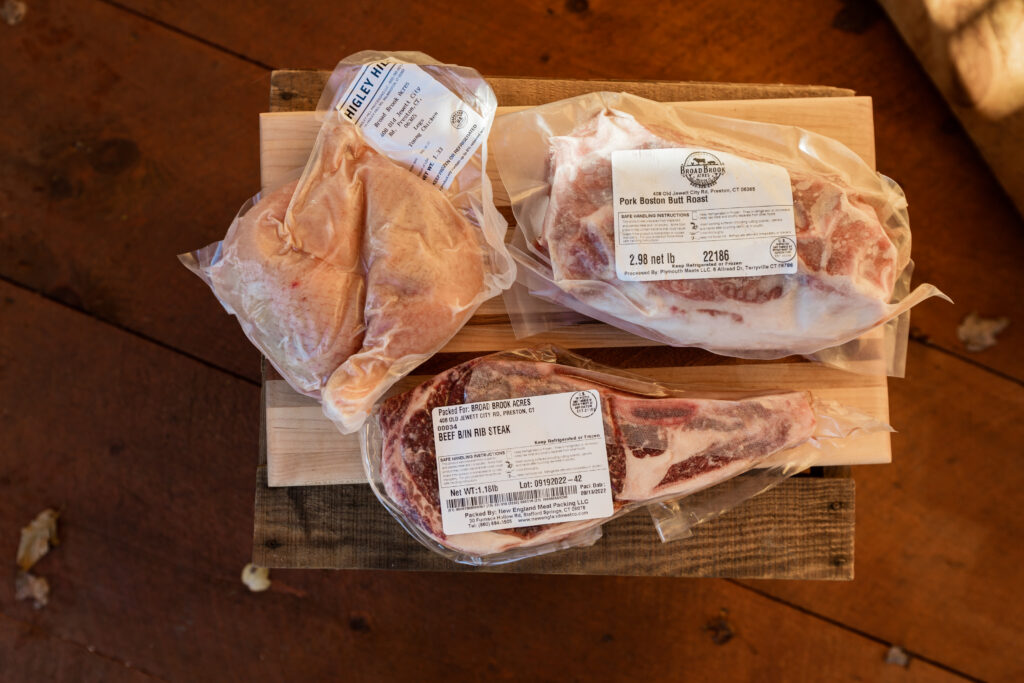
Across Connecticut, livestock farmers are raising thousands of animals from the traditional beef, poultry, and pork to a bit more exotic such as bison and emu.
While traditional CSAs provide different types of vegetables, meat CSAs offer a variety of meat cuts such as chops, sausages, ribs, roasts and ground meat. The program may provide a few pounds of meat every week, or monthly pickups with a larger selection.
CT Grown livestock producers are open to sharing the sustainable practices they use to raise their animals. Some practices include grass-fed diets, pasture-raised practices which are said to yield a higher nutritional value and better taste.
Meat CSAs can work particularly well for those who are worried that their CSA shares will be inconsistent or that they will let food go to waste. Since meat CSAs are based on weight, you’ll be guaranteed a set amount of food with each share. Any meat you don’t use can be stored in the freezer until you need it.
Community Supported Fisheries (CSF)
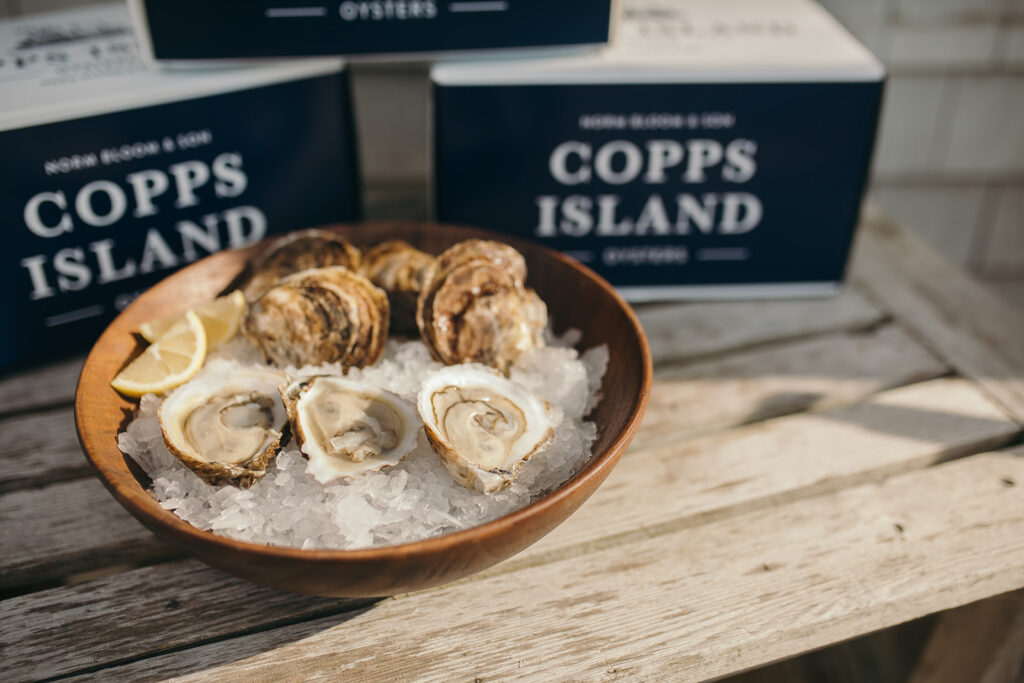
Similar to meat CSAs, Community Supported Fisheries (CSF) programs let you enjoy fresh seafood soon after it has landed on Connecticut’s shores. In exchange for your upfront payment, you’ll get regular shares of aquaculture products like fish, shellfish, and kelp.
CSF programs work to make these products available to the consumer as quickly as possible. Seafood is purchased from local fishermen, then processed and made available for pickup.
While traditional CSAs help farmers cover the costs of each new growing season, CSFs help CT Grown aquaculture producers to pay for expenses like boat repairs and the purchase of new gear.
Flowers and seeds
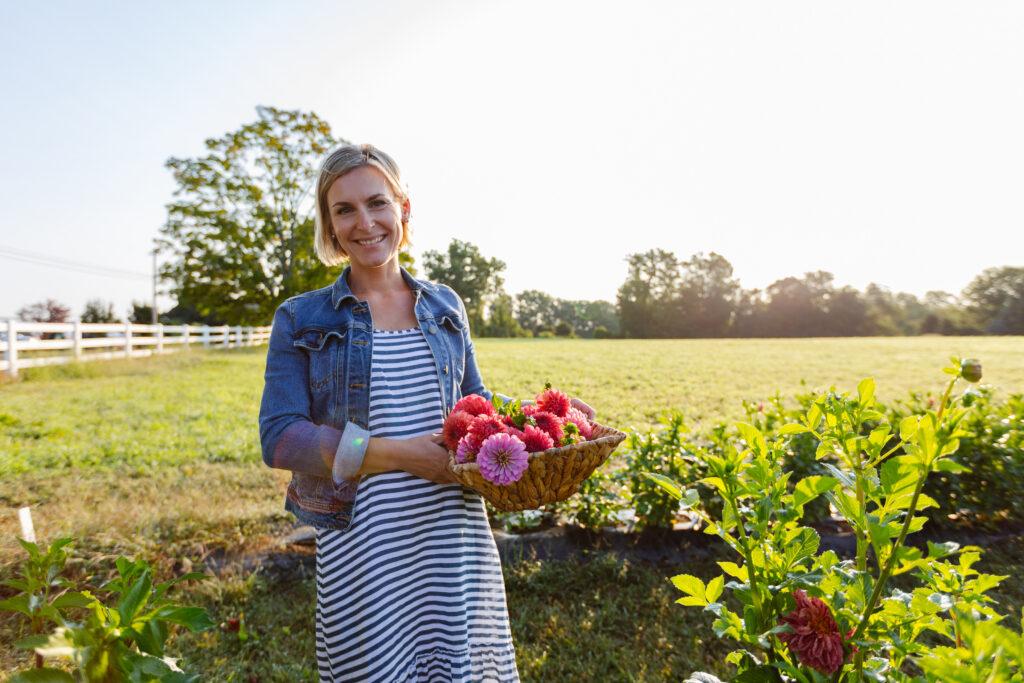
Countless families have picked up locally produced flowers to add beauty and fragrance to their home. If you want to keep these displays as a more consistent part of your home decor, you might consider a flower CSA.
Flower CSAs offer bouquets of flowers with an ever-changing variety based on what’s in season. You may have the option of picking your own flowers, and some CSAs even provide seed packets so you can grow additional lovely blooms in your own garden.
This type of CSA gives you the freshest flowers possible, since you’ll be getting them directly from the farm. It can also be a good option for those looking to try out a CSA for the first time, as flower CSAs tend to be less expensive and cover a shorter span of time.
Subscriptions and customizable shares
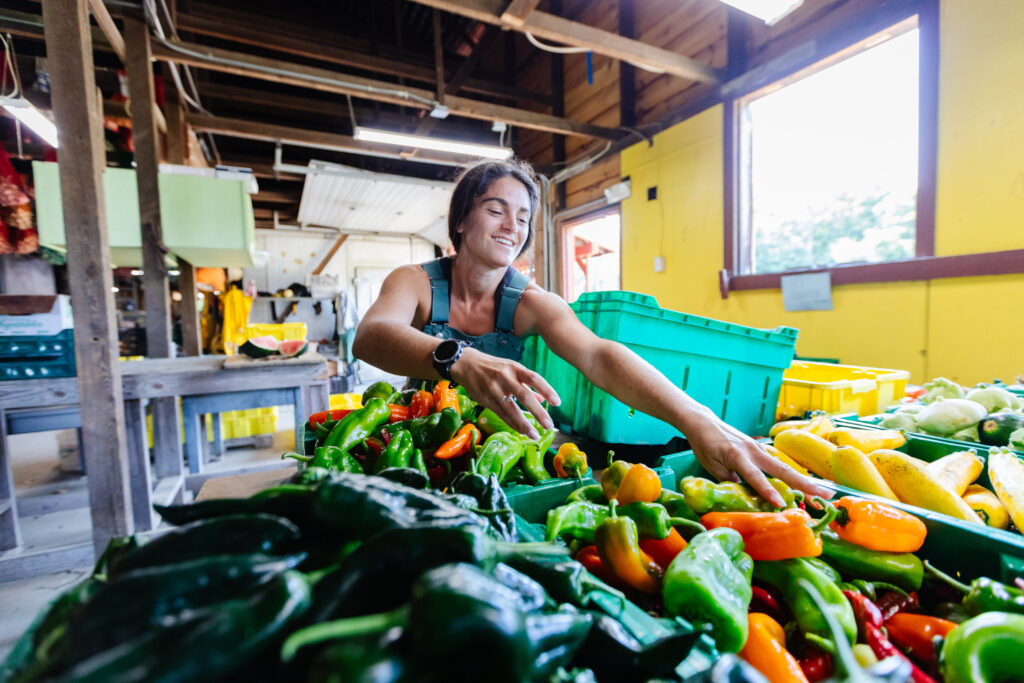
Farms can offer programs that are similar to CSAs but provide more opportunities for flexibility and customization. Vegetable subscription boxes let you choose how frequently you receive your produce and how many weeks your subscription will run. CSAs also may have a “market style” setup, allowing you to pick and choose what you’d like to take home.
Programs may involve collaborations between multiple producers in order to provide a range of goods. Some Connecticut dairy farms have started subscription delivery services that not only bring milk to your doorstep, but also goods like eggs, granola, and breads.
If you frequently use a certain commodity, you may find a farm offering a CSA exclusively for this item. These specialty CSAs include items like bread, cheese, eggs, honey, maple syrup, milk, and mushrooms.
CSAs sometimes invite you to pick your own produce as part of the experience. Instead of getting a preselected portion of fruits or vegetables, you might be invited to head into the fields to take your pick of items like berries, flowers, herbs, hot peppers, snap peas, or tomatoes.
To learn more about how CSAs work, visit our previous blog. To find a CSA near you, visit this map.
Everything You Need to Know About Connecticut CSAs
Farmers may be less visible during the winter months, but that doesn’t mean they aren’t hard at work. Some, like dairy and livestock farmers, continue to bring products to stores and markets year-round. Those that rely primarily on crop sales spend the winter buying seeds, upgrading equipment, and otherwise preparing for the growing season.
One innovative way to support CT Grown farmers during the winter is to purchase a share in a Community Supported Agriculture (CSA) program. Many farms in Connecticut begin opening these programs for signups at the start of the year.
CSAs are beneficial to both farmers and consumers. By purchasing a share of the upcoming harvest in advance, you can help sustain a farm’s cash flow and ensure that it is well-prepared for the season ahead. You’ll also enjoy a better understanding of how your food is grown, a closer connection with your local farms, and consistent access to fresh produce, proteins and flowers.
Each farm has its own unique way of offering a CSA. This guide will help you to understand the program and how it can help you to support local farmers and eat healthier foods.
How does a CSA work?
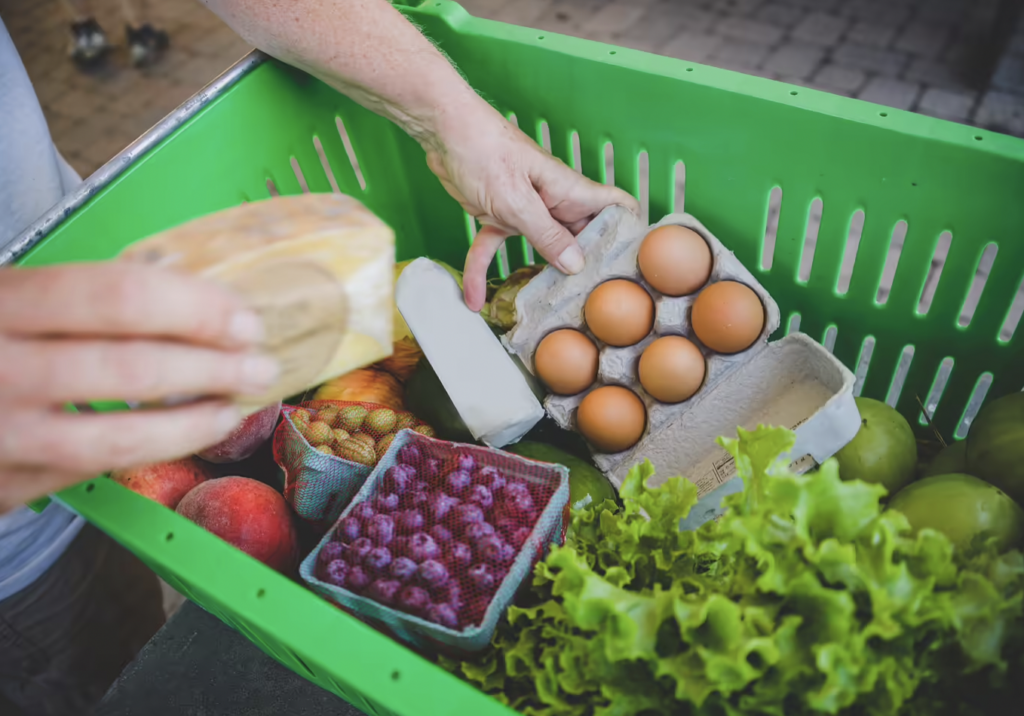
CSAs follow a simple shareholder model. By paying in advance during the winter, you purchase a share of the farm’s crop during the upcoming season. You receive your share on a weekly or biweekly basis, over the course of several weeks or the full growing season.
Only a limited number of shares are available, with the idea that this will create a closer relationship between farms and shareholders. By communicating with shareholders about their preferences, farmers can also be better prepared for the growing season ahead.
Why should I sign up for a CSA?
There are numerous benefits to signing up for a CSA. These include:
- A regular supply of fresh CT Grown fruits, vegetables, and other products
- Produce that retains more of the nutrients present at harvest, since it spends less time in transit or storage
- Getting introduced to new foods which you may not have otherwise tried
- Knowing exactly where your food comes from
- Supporting a local business, including farms committed to sustainable and environmentally conscious operations
- Regular visits to your local farm or farmers’ market — a particularly enjoyable outing for families with young children!
- Useful supplements like recipes and tips on how to prepare the latest share
- Members-only perks like farm stand discounts or free surplus shares during bountiful harvests
What do I get in a CSA share?
The food in your CSA share will depend on what the farm produces, so you should check ahead to see if they’ll provide the fruits, vegetables, and other items you enjoy. Items will also vary with the season; for example, CSAs offering vegetables tend to proceed from greens and early root vegetables in the spring to a wider array of produce in the summer and hardy root vegetables in the autumn.
CSAs aren’t just limited to fruits and vegetables; some keep you supplied with meat or cut flowers. Farms may also provide bonus products or optional add-on shares for locally produced goods like eggs, cheese, honey, dairy products, or mushrooms.

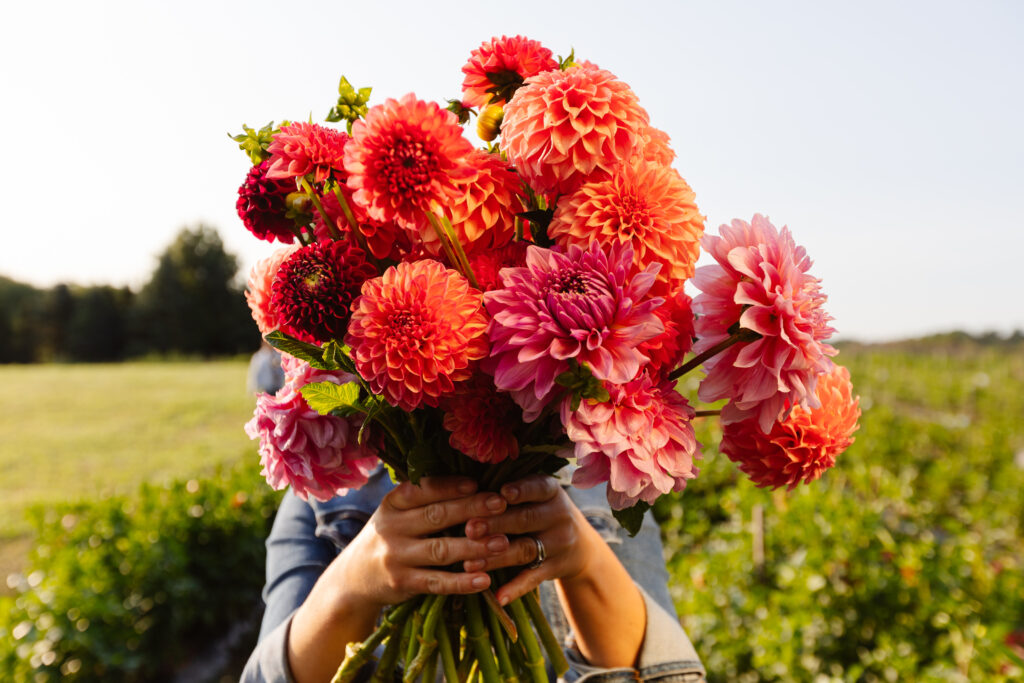
CSA shares feature items produced on the participating farm, but sometimes bring in food from partnering farms and producers to offer a wider variety.
While CSA shares are typically prepackaged, some offer a “market style” pickup option. In this arrangement, you visit the farm and choose from a selection of available produce and goods.
How large are the shares?
CSAs offer several share sizes. In addition to a full share, you’ll find options to purchase a half share or a quarter share.
Farmers advise that you consider factors like your household size and eating habits when picking your share size. A large share is usually recommended for a family of at least four, while half shares are more suitable for couples.
When do I get my CSA shares?
The typical CSA season runs from June through October. However, some farms offer optional extensions in the spring and winter. Spring CSAs feature greens and early crops, while winter CSAs include winter vegetables, food grown using indoor farming techniques, and value-added foods like relishes, sauces, and jams.
Farms set specific times and days of the week for CSA members to pick up their shares.
Where do I pick up my CSA shares?
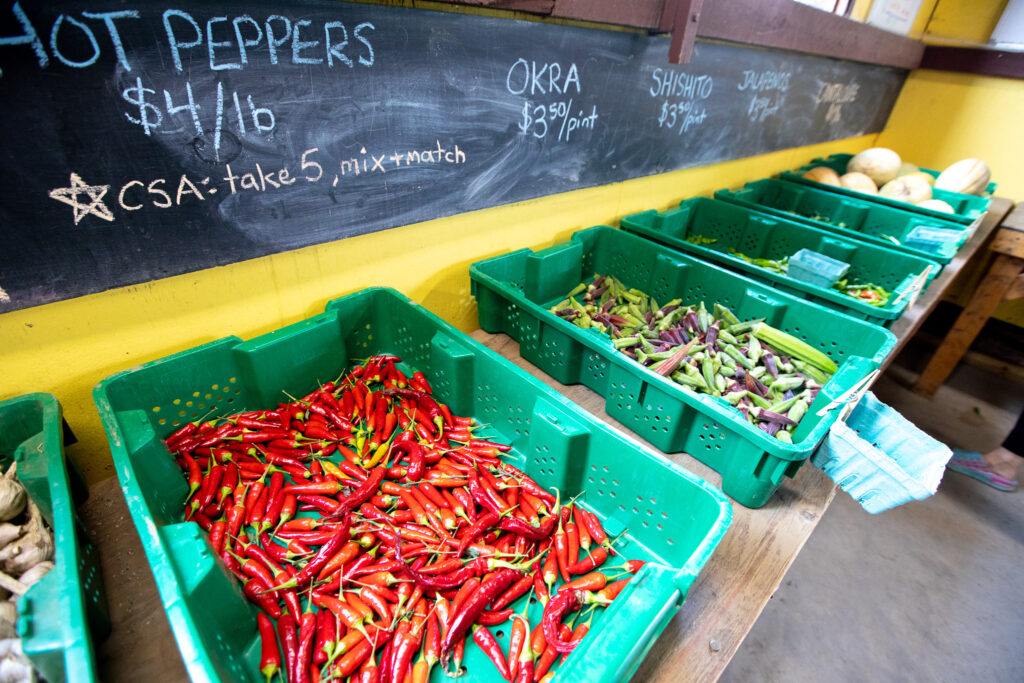
CSA pickups take place on the farm itself, but farms frequently set multiple pickup locations for better convenience. For example, CSA members may be able to collect their share at a farmers’ market where the farm sets up each week.
Some programs offer to deliver CSA shares directly to homes within a certain distance of the farm. However, this service usually comes with an extra fee.
What happens if I miss a pickup?
Farmers sometimes offer to hold on to your share to pick up at your convenience if you are unable to make one of the scheduled pickup dates. However, some warn that this option is not available due to busy schedules or concerns about the perishability of the share.
If you are on vacation or otherwise know you’ll miss a scheduled date, you can arrange to have someone else pick up the share instead. Alternatively, farmers may arrange to give you a double share at your next pickup.
If no arrangements are made, unclaimed shares are usually donated to a local charitable organization.
Is a CSA cost-effective?
Yes! A CSA’s upfront cost typically translates to about $25 to $50 per week during the harvest season. CSAs are designed to, at a minimum, offset the produce purchases you would otherwise be making in the store.
However, members often find that they’ve received goods worth more than their initial payment by the end of the season. Farms use strategies such as basing their CSA costs on wholesale prices, discounting shares for early signups, giving CSA members regular discounts in their farm stores, and providing surplus shares during strong seasons to ensure that members get a good return on their investment.
How do I pay for a CSA?
Each farm has its own payment methods, but many accept cash, checks, and credit cards. A processing fee may be charged for credit card payments.
While traditional CSAs require the cost to be paid in full in advance, some programs have payment plans to spread the purchase over the season through regular weekly or monthly contributions.
In addition, some farms provide unique options such as scholarships, workshares, or even bartering to offset or cover the cost of a CSA share.
Can I use SNAP/EBT to purchase a CSA?
SNAP/EBT can be used to purchase a CSA, as long as certain requirements are met. The benefit can be processed through a SNAP-eligible farm or vendor, or through a SNAP-eligible farmers’ market. Only SNAP-eligible items can be included in shares given to those using this payment method.
Furthermore, SNAP/EBT rules require that prepaid items must be received within 14 days. SNAP/EBT also cannot be used to pay for items bought on credit, or to pay for certain costs associated with operating a CSA, including taxes, down payments, and administrative, delivery, or membership fees.
While these rules prohibit the use of SNAP/EBT funds to make an upfront payment, they do require that farms follow certain steps to abide by these rules. People using SNAP/EBT may need to sign a written agreement committing them to the CSA. These agreements are meant to establish a clear understanding that a portion of the recipient’s SNAP/EBT benefits will go toward the CSA, and that the recipient is responsible for picking up their share. Participating farms may also require an upfront deposit using non-SNAP funds.
Some farms have established their own programs to provide CSA shares to low-income families in their communities. These programs may use donations from the community to cover the cost of a share, or offer shares at reduced rates to qualifying families.
What are the risks of signing up for a CSA?
Farmers acknowledge that there are certain risks to signing up for a CSA. Shareholders get a portion of the farm’s harvest, and shares will not be as robust if the farm is affected by drought, disease, or other factors leading to a diminished crop.
However, farms take several steps to minimize this risk. These include providing a limited number of shares, giving CSA members first priority in receiving produce, planting a surplus crop, and supplementing undersized shares with items from partnering farms.
Shareholders must also be prepared to regularly pick up and use their shares in order to get the best value from their purchase. Since a CSA purchase commits a shareholder to the full season, refunds are typically not available if you decide partway through the season that you no longer want to participate.
How do CSAs support CT Grown farmers?
The key benefit CSAs provide to farmers is cash flow during the winter months, when they are typically relying on revenues from the previous year’s growing season. The money provided through CSA purchases helps cover costs like seed and equipment purchases as well as the spring’s startup labor costs.
By communicating with their members about their preferences, farmers can anticipate the market demand in the upcoming season. This, in turn, can guide their decisions on what to grow and how much to plant.
CSAs also help to both minimize and distribute the risks associated with agriculture. By allowing a stronger cash flow during the winter, they help farmers start the growing season strong. And by having many people invest in a year’s crop, CSAs also ensure that a less productive year is not financially crippling for the farmer.
Ready to sign up?
Check out this interactive map of Connecticut CSAs!
No matter how you recognize the holiday season, feasting is a big part of the occasion. When families come together, the dinner table is the perfect place to celebrate with loved ones over a rich and hearty meal.
Holiday meal traditions go back generations, and fresh CT Grown ingredients can easily be used for many of the customary dishes served at holiday occasions. Here’s a look at why certain foods come to the table each year, with suggested recipes that can be made with a little help from your local farmers and producers.

Many traditional Hanukkah dishes are fried in oil, commemorating the well-known miracle of the menorah burning for eight days even though there was only enough oil for one day. Latkes and sufganiyot are particularly popular during the holiday.
Latkes are commonly prepared with potatoes, but often incorporate cheese as well. This ingredient honors the story of the heroine Judith, who saved her people by feeding an Assyrian general salty cheese and wine, then decapitating him.
Sweet potatoes are readily available at Connecticut winter farmers’ markets and go great with the following latke recipe. You can also pick up some CT Grown jelly or jam for this delicious sufganiyot treat.

Christmas meal traditions vary widely from country to country. Common Christmastime dishes include tamales in Mexico, minced pies in Eastern Europe, and fish in Italy and Scandinavia.
Despite the melding of many cultures in the United States, the big feast on Christmas Eve or Christmas is still largely rooted in English tradition. British celebrations feature a hearty main dish such as a turkey or roast, and Brussels sprouts also became a popular choice due to their hardiness as a winter crop.
For a traditional twist that makes a statement, try the following recipes with CT Grown pork, Brussels sprouts, and maple syrup.

Kwanzaa’s name derives from a Swahili phrase for “first fruits of the harvest,” and the celebration is rooted in the harvest festivals of sub-Saharan Africa.
The holiday incorporates many food-related symbols, including mazao (for harvest crops, represented by fruits/vegetables), and muhindi (for fertility and the future offered by children, represented by one ear of corn for each child in the family). Meals also typically incorporate collard greens, a symbol of fortune, and black-eyed peas, a symbol of good luck.
For the traditional Karamu feast on December 31, try these hearty dishes that use CT Grown foods like winter squash, chicken, garlic, and peppers.
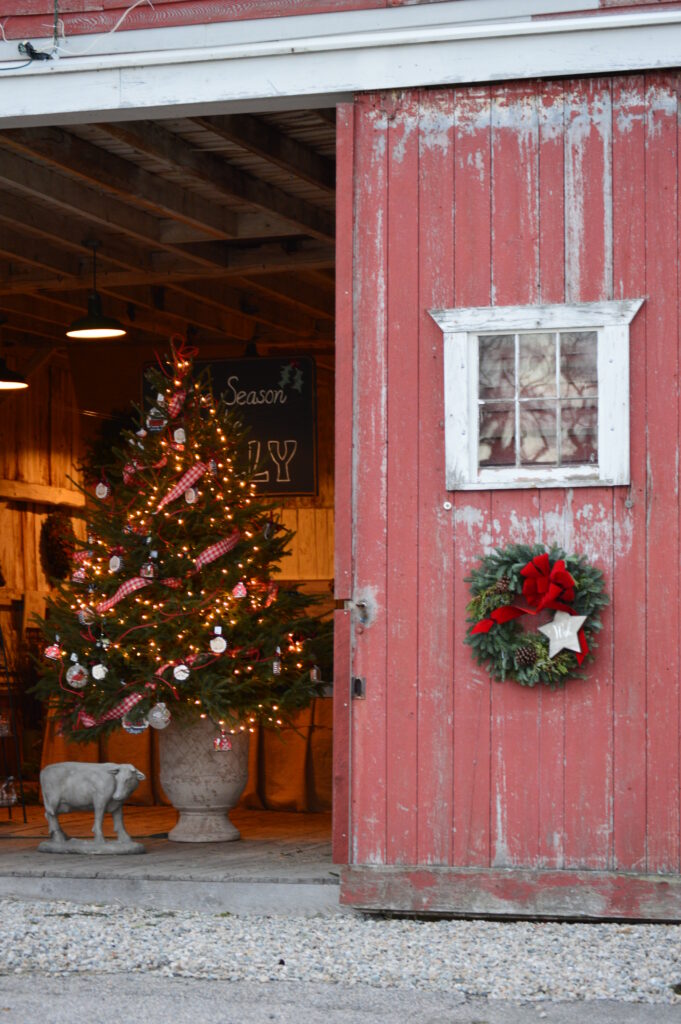
The holiday season brings an onrush of classic holiday films, ranging from It’s a Wonderful Life and Frosty the Snowman to more recent movies like National Lampoon’s Christmas Vacation and Elf. Every family has a few favorites they like to cozy up with in the leadup to Christmas.
The 1945 romantic comedy Christmas in Connecticut has also started to gain more attention, especially in its namesake state. This year, the Goodspeed Opera House debuted a musical based on the film, and the show runs through December 30th.
The story follows Elizabeth Lane (Barbara Stanwyck), a magazine writer whose column chronicles her idyllic life with her husband and child on a Connecticut farm. The only problem: Elizabeth actually lives alone in New York City. When an invitation to host a returning war hero on the farm threatens to expose the ruse, Elizabeth tries to fabricate her fictional life on a farm owned by a friend. Hilarity ensues!

Christmas in Connecticut both showcases and lampoons the classic depictions of Christmas in a rural New England town, with scenes featuring horse-drawn sleigh rides and runaway cows. The film is also a surprising treasure trove for food lovers, as Elizabeth’s column is dedicated to farmhouse cooking.
In honor of the classic film and the new Goodspeed show, we’d like to share some dishes featured in Christmas in Connecticut and offer tips on how you can use CT Grown ingredients to prepare them.
Flapjacks
In both the film and musical, Elizabeth borrows her recipes from Felix Bassenak, a boisterous Hungarian chef and restaurant owner. Felix accompanies Elizabeth to the farm to aid in the deception and, in a memorable and amusing scene, tries to teach her how to make flapjacks (or, in his words, to “flip-flop the flop-flips”).
Flapjacks can be made with a few simple ingredients, including milk, eggs, butter, and maple syrup – all of which are produced in Connecticut year-round. Try the following recipes for a delicious Christmas breakfast!
Roast goose bernoise
Elizabeth’s lengthy Christmas menu is topped by the main course of roast goose bernoise with walnut dressing. Goose was once a popular tradition on Christmas and, while it has largely been replaced by other options such as turkey, some Connecticut farms continue to raise this bird.
“Bernoise” is likely referring to bearnaise sauce, a mouthwatering French topping made with butter and white wine. Visit Connecticut Wine Country to get the latter ingredient; use some for cooking, and serve the rest with dinner!
Candied sweet potatoes
Another pick from Elizabeth’s Christmas menu, candied sweet potatoes, are a delicious side dish for a holiday feast. This hardy vegetable stores well, and sweet potatoes harvested in the late autumn can still be found at a winter farmers’ market or grocery store. Pick up some Connecticut maple syrup to make that perfect glaze!
Potatoes au gratin
Felix’s restaurant serves up a robust line of courses, including potatoes au gratin. In Connecticut, potatoes are typically harvested through the end of the summer, but do so well as a storage crop that they are available year-round.
For a uniquely Connecticut spin on this recipe, try out the Lighthouse Inn potatoes. This dish was an iconic side at the New London inn, and is available once more after the inn reopened earlier this year.
Brussels sprouts a la Felix
Felix’s menu also includes “Brussels sprouts a la Felix”—again leaving to the imagination how this eccentric character may have prepared this side. Brussels sprouts have become a popular option for Christmas feasts due to their cold hardiness. Harvested here in October and November, Brussels sprouts do well in storage and are readily available throughout the winter.
In honor of Felix’s ancestry, we picked this Hungarian-style preparation:
Wishing you a delicious feast and a happy holiday!
Part of the fun (and frustration) of holiday shopping is finding the right gift for everyone on your list. While checking out your local businesses this season, don’t forget to include Connecticut farmers and producers!
You can find excellent gift options at winter farmers’ markets, and at farm stores and websites. Here are a few ways you can give a CT Grown gift to a loved one this year:
Find their jam
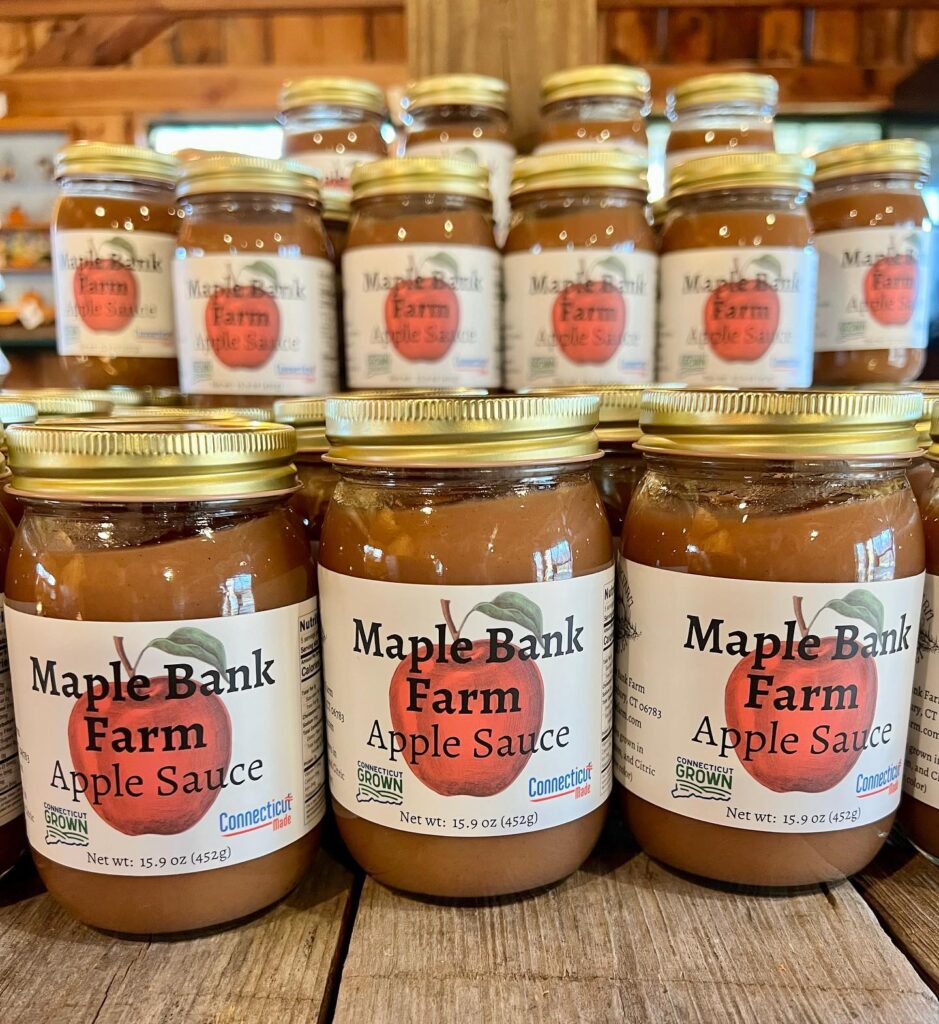
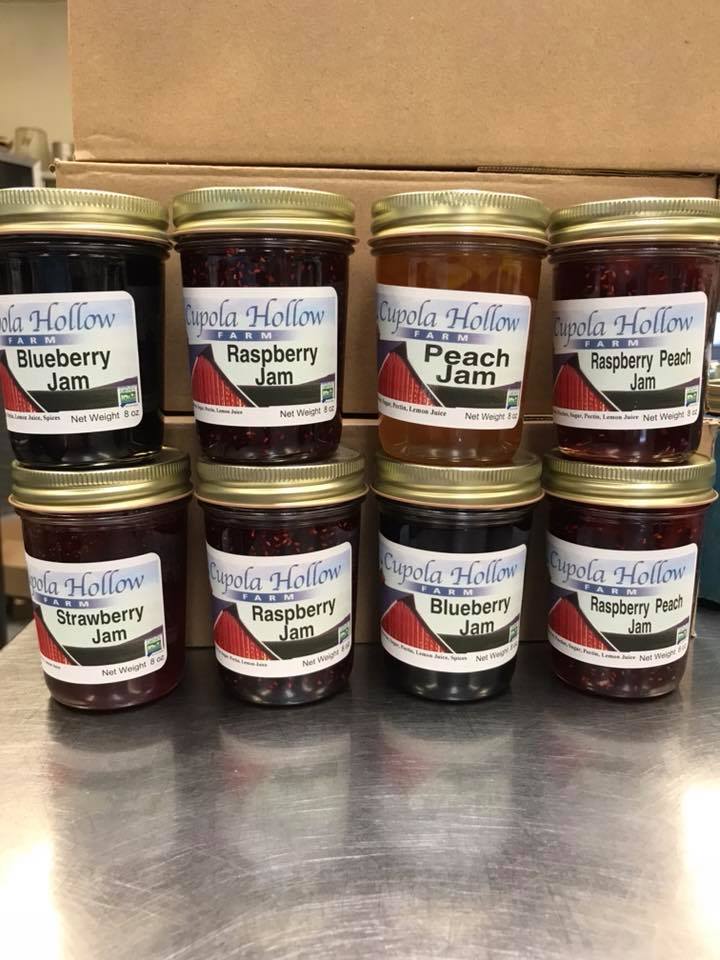
While harvest season is over in Connecticut, there are still plenty of delicious CT Grown items available. Each year, part of the harvest goes toward value-added products like jams, jellies, salsas, pickles, relishes, dips, and sauces. These are often made from family recipes that have been passed down for generations.
Enroll them in a CT Grown class or retreat
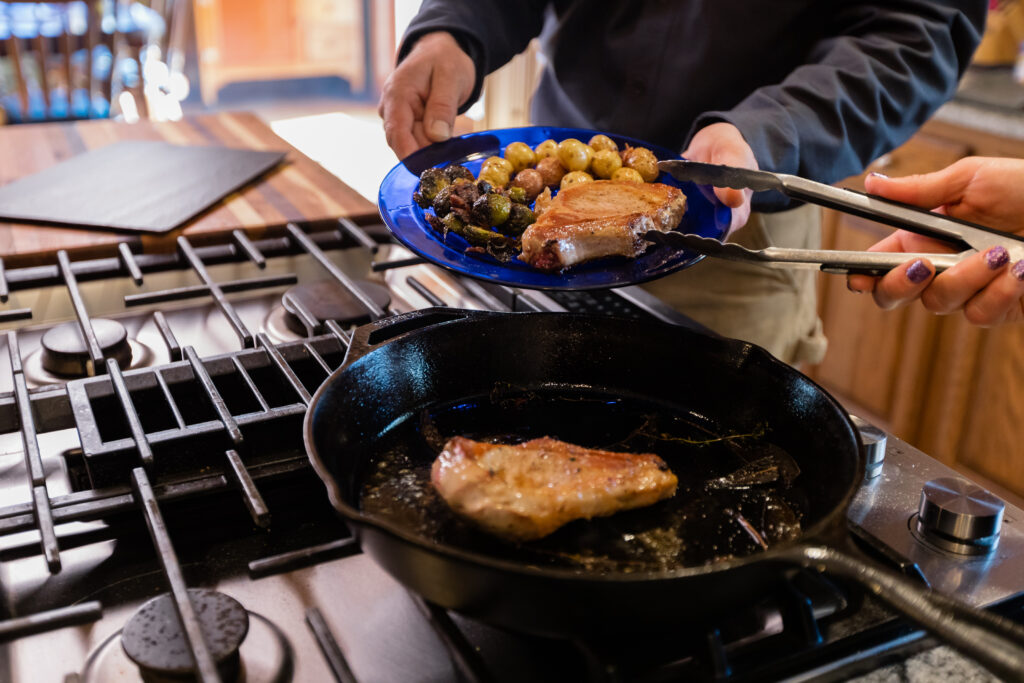
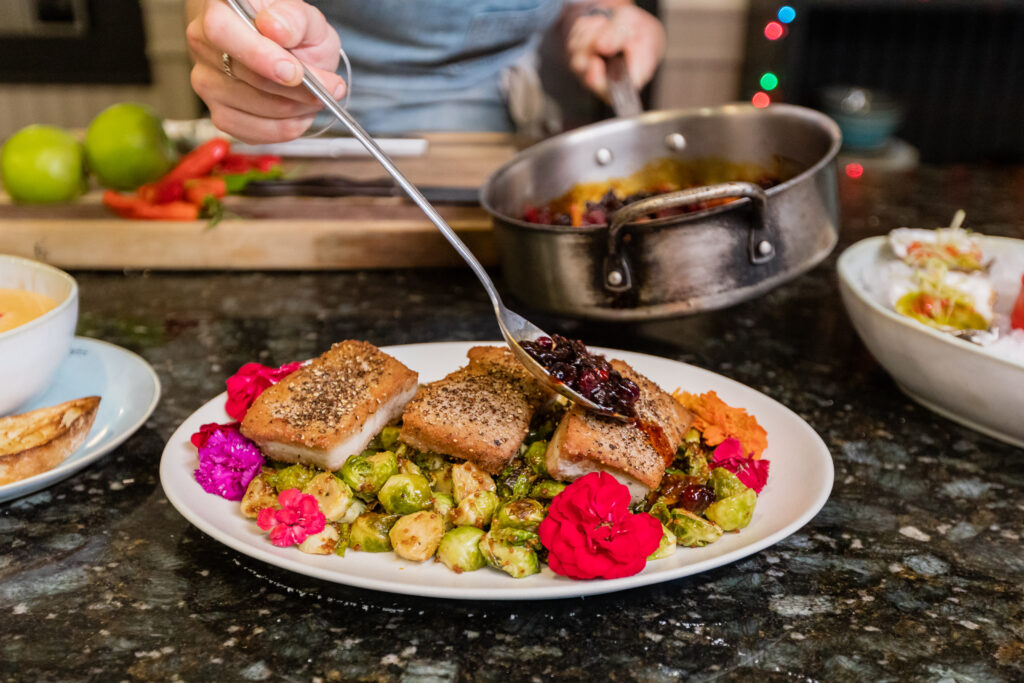
Many Connecticut farms and producers are happy to share their knowledge, hosting classes and workshops. These events provide a great way to learn about what crops thrive in Connecticut and how you can support sustainable agriculture at your own home.
Sign up a loved one for:
- Gardening classes that cover topics like seasonal planting, garden care, seed collection, and pest control
- Culinary classes that guide you through how to turn your backyard harvest into a tasty meal, making a charcuterie board, local wine and cheese pairings, and more
- Beekeeping classes to assist you with starting or maintaining a hive
- Daylong or weekend farm retreats where you get a hands-on experience of harvesting and cooking
Don’t leave the little ones off the list, either. Some cooking courses are designed with children in mind, and provide a firsthand education on where their food comes from. You can also register them in a farm camp or one of three weeklong 4-H camps.
Sign them up for a CSA membership
Give the gift of fresh food throughout the coming year. Numerous farms participate in Community Supported Agriculture (CSA) programs, which allow participants to pay for a portion of the next harvest in advance.
Several products are available through CSAs, ranging from cut flowers to meat to fruits and vegetables, and shares are usually available for pickup each week between June and October.
As an added bonus, farms often accompany their CSA shares with useful supplements like a newsletter with recipes for preparing each week’s bounty. A great gift for someone who likes to cook and is always in need of fresh ingredients!
Send some food by mail
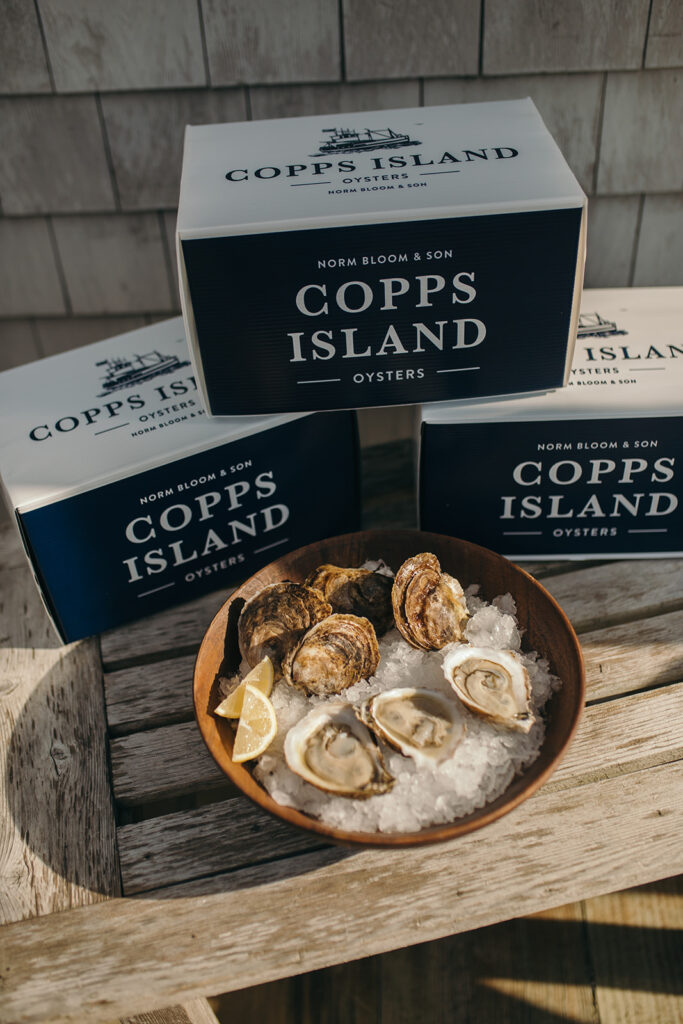
More and more CT Grown farms are embracing ecommerce, with some hosting online stores where you can conveniently order food to be delivered or mailed. There are Connecticut shellfish companies that can mail oysters caught the same day, meat producers who will travel locally to drop off a cooler with some chops or steaks, and farms that ship gift boxes of apples, pears, and other items.
You can also find subscription boxes featuring CT Grown goods. These companies often partner with local farms to regularly mail a box bursting with delicious food items, including meats, cheeses, and jams. Some boxes also offer items made from animal products, such as soaps and skin care products (see below).
Toast them with local libations
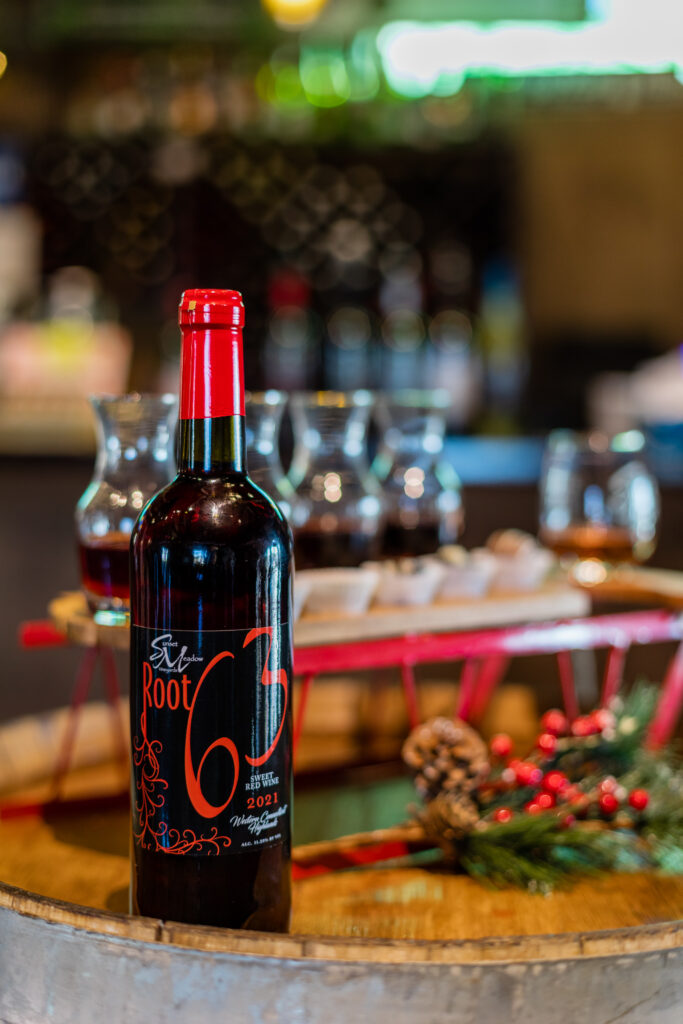
Pick up a bottle of wine from one of the 45 farm wineries that make up Connecticut Wine Country. Alternatively, you can sign them up for membership in one of the many wine clubs or adopt-a-vine programs offered by these wineries.
Other gift options include a selection of beer from a craft brewery, hard cider from an orchard or craft cidery, spirits from a local distillery, or “honey wine” from one of Connecticut’s growing number of meaderies. Many of these businesses enjoy a close relationship with CT Grown farms, incorporating the flavors of locally produced fruits and herbs into their beverages.
Get them ready for gardening season
Hundreds of Connecticut farms grow flowers and produce potting soil, seeds, compost, and other products that can assist home gardeners. Some farms also offer unique garden products, such as potting plants sustainably made from cow manure or specialized plant varieties.
Browse your local greenhouse or garden center to see what’s available!
Find some wood goods

Connecticut has a small but vibrant woodland economy, and wood products sustainably harvested from the state’s forests can be labeled as CT Grown.
Look for a CT Grown producer of gift items like carved bowls, cutting boards, coasters, or game boards. If you’re looking to spend a bit more, you can also find fine furniture carved by Connecticut artisans using local wood.
Warm them up with fiber products
If you know someone who’s planning to spend the winter under a quilt, visit a local fiber producer to browse their selection of goods. Connecticut farmers collect fiber from sheep, alpaca, and Angora goats; produce yarn from this fiber; and often sell finished products as well.
Popular products include blankets, hats, mittens, scarves, and sweaters. You can also find rugs and knitted craft items, such as stuffed animals and jewelry.
Find CT Grown personal care products
Some CT Grown producers do a brisk trade in personal care products, including lip balms, lotions, deodorants, and chapsticks. Apiaries frequently sell these items alongside their honey, using beeswax to help the skin retain moisture.
Farms producing milk from cows, sheep, or goats sometimes use it to create soap. These soaps are said to be particularly useful for sensitive skin, as they can help moisturize, prevent wrinkles, and keep acne at bay.
Get a box of cigars with Connecticut tobacco
Connecticut has a long history of producing tobacco, and still holds a place of honor among cigar aficionados. A box of cigars wrapped in CT Grown tobacco makes a fine gift for someone who enjoys the occasional smoke.
Two varieties of tobacco are grown in Connecticut, each with their own distinct flavor profile. Shade tobacco has a subtly sweet taste, offering notes like vanilla, cream, and graham cracker. Broadleaf tobacco is darker and bolder, with a flavor described as earthy or similar to dark chocolate.